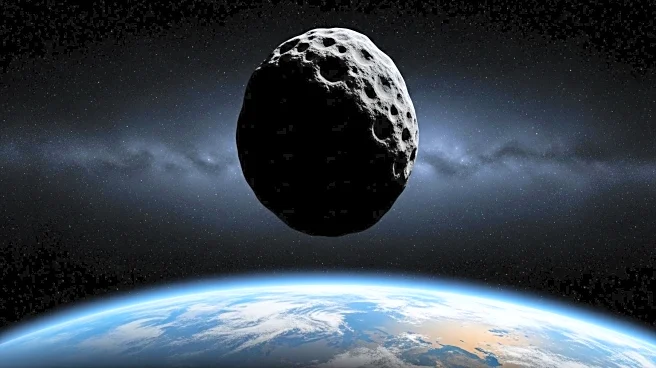What is the story about?
What's Happening?
NASA has announced that an asteroid, named 2025 FA22, will make a close approach to Earth on September 18. The asteroid, measuring between 427 and 951 feet across, is comparable in size to a large skyscraper. It is traveling at a speed of over 24,000 mph. Despite its size and speed, NASA and the European Space Agency (ESA) have confirmed that the asteroid poses no immediate threat to Earth, as updated measurements have ruled out a collision. The asteroid was first detected in March using a telescope in Hawaii and was added to ESA's watch list of potentially dangerous asteroids. This event offers scientists a rare opportunity to study a large asteroid up close.
Why It's Important?
The close approach of 2025 FA22 is significant for scientific research, as it provides astronomers with a chance to study the characteristics and behavior of large asteroids. Understanding these celestial bodies is crucial for assessing potential future threats and developing strategies to mitigate impact risks. While the asteroid poses no immediate danger, its size and speed highlight the importance of ongoing monitoring and research by agencies like NASA and ESA. The event underscores the need for continued investment in space observation technologies to ensure preparedness for any future asteroid threats.
What's Next?
Although 2025 FA22 will not collide with Earth, it is expected to make similar close approaches in 2089 and 2173. Scientists will continue to monitor its trajectory and gather data during its current pass. This information will contribute to the broader understanding of asteroid dynamics and impact probabilities. Future observations may lead to advancements in asteroid deflection technologies and international collaboration on planetary defense strategies.
Beyond the Headlines
The event highlights the broader implications of asteroid monitoring and planetary defense. It raises questions about the preparedness of global systems to respond to potential asteroid threats and the ethical considerations of space exploration. The study of asteroids also contributes to our understanding of the solar system's history and the formation of celestial bodies.















